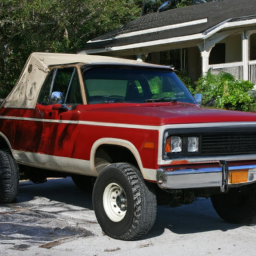
Overhauling the gear set on a Dodge Ramcharger involves disassembling and reassembling the differential, which is a complex process but can be tackled with patience and the right tools. click here for more details on the download manual…..
- The Dodge Ramcharger Is How SUVs Used to Be CHECK OUT CARS & BIDS! https://carsandbids.com Dodge Ramcharger review! The Dodge Ramcharger is an old-school SUV, …
- 1985 Dodge Ramcharger 4×4 4 Speed Manual 5.2L V8 for sale in Milwaukie, OR Click here to learn more about this vehicle: https://www.lot99llc.com/vehicle-details/a86f7bc2a52043459dfbc8f62b991826 1985 …
Here’s a simplified step-by-step guide to help you understand the process. Please note that this is a general overview; consult a repair manual or a professional for specific details and safety precautions.
### Tools and Materials You’ll Need:
– Basic hand tools (wrenches, sockets, screwdrivers)
– Torque wrench
– Gear puller
– Differential rebuild kit (includes bearings, seals, and gaskets)
– Gear oil
– Cleaning supplies (brake cleaner, rags)
– Safety glasses and gloves
### Step-by-Step Guide:
#### 1. **Preparation:**
– **Safety First:** Make sure you wear safety glasses and gloves to protect yourself.
– **Gather Tools:** Collect all necessary tools and materials.
– **Work Area:** Set up a clean and well-lit workspace.
#### 2. **Remove the Differential Cover:**
– **Lift the Vehicle:** Use jack stands to safely lift the vehicle.
– **Drain the Oil:** Place a drain pan under the differential and remove the cover bolts to drain the old gear oil.
– **Remove the Cover:** Gently tap the cover with a rubber mallet if it’s stuck. Clean the mating surfaces after removal.
#### 3. **Remove the Axles:**
– **Take Out the C-clips:** If applicable, remove C-clips holding the axle shafts in place, typically located inside the differential.
– **Pull Out the Axles:** Gently pull the axles out of the differential housing.
#### 4. **Disassemble the Differential:**
– **Remove the Pinion Gear:** Use a socket to remove the pinion gear nut and then pull the pinion gear out.
– **Remove the Carrier:** Take out the differential carrier by removing the bolts holding it in place. Be cautious as it may be heavy.
#### 5. **Inspect Components:**
– **Check Gears and Bearings:** look for wear or damage on the gears and bearings. Replace any worn parts with those from your rebuild kit.
#### 6. **Install New Components:**
– **Install New Bearings:** Press new bearings onto the pinion and carrier (you may need a press for this).
– **Reassemble the Carrier:** Place the carrier back into the housing and secure it with bolts.
– **Install the Pinion Gear:** Reinsert the pinion gear and tighten the nut to the specified torque using a torque wrench.
#### 7. **Adjust Backlash and Preload:**
– **Check Gear Mesh:** Use a marking compound to check the gear mesh pattern. Adjust the shims as necessary to achieve the proper backlash (the space between the gears).
– **Set Preload:** Ensure the bearings are properly preloaded to avoid excessive wear.
#### 8. **Reinstall the Axles:**
– **Insert Axles:** Slide the axles back into the differential housing and secure them with C-clips if applicable.
#### 9. **Reattach the Differential Cover:**
– **Clean Surfaces:** Ensure the mating surfaces are clean and free of debris.
– **Apply Gasket Maker:** If using a gasket maker, apply it to one surface of the differential cover.
– **Reinstall the Cover:** Bolt the differential cover back in place.
#### 10. **Fill with Gear Oil:**
– **Add Gear Oil:** Use a funnel to fill the differential with the appropriate type and amount of gear oil, as specified in the owner’s manual.
and amount of gear oil, as specified in the owner’s manual.
#### 11. **Lower the Vehicle:**
– **Remove Jack Stands:** Carefully lower the vehicle back to the ground.
#### 12. **Test Drive:**
– **Check for Issues:** After a short test drive, listen for any unusual noises and check for leaks around the differential cover.
### Conclusion:
Overhauling a gear set can be a rewarding project, but it requires careful attention to detail and patience. If at any point you’re unsure, don’t hesitate to consult a professional mechanic or refer to a detailed repair manual specific to your Dodge Ramcharger model.
The accelerator pedal, often referred to simply as the gas pedal, is a crucial component in both manual and automatic vehicles, playing a significant role in the operation of the car’s engine and overall driving dynamics. Typically located on the right side of the driver’s footwell, the accelerator pedal is designed to control the engine’s throttle, which subsequently regulates the amount of air and fuel entering the engine. By pressing down on the pedal, the driver signals the vehicle to increase its speed; releasing the pedal decreases the speed as the throttle closes.
In modern vehicles, the accelerator pedal is often connected to an electronic throttle control system, which eliminates the need for a direct mechanical linkage to the engine. This system utilizes sensors to detect the position of the pedal and sends signals to the engine control unit (ECU), allowing for precise management of engine power and efficiency. This electronic setup can enhance performance, improve fuel economy, and contribute to the implementation of advanced features such as cruise control and traction control.
The design and responsiveness of the accelerator pedal can significantly influence the driving experience. A well-calibrated pedal provides smooth acceleration, allowing drivers to merge onto highways or navigate city streets with confidence. Furthermore, safety features such as pedal misapplication prevention systems can help prevent accidents by ensuring that unintended acceleration does not occur, highlighting the importance of this seemingly simple component in automotive technology.